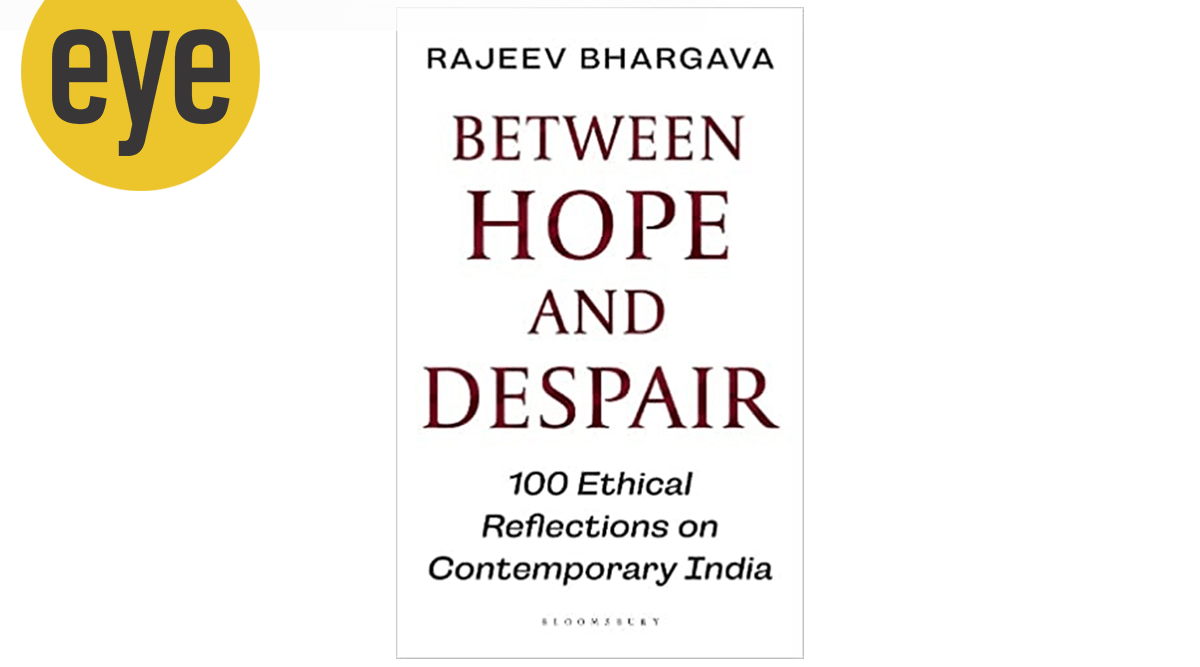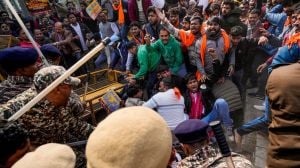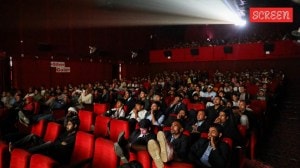Rajeev Bhargava’s Between Hope and Despair encourages readers to reflect on public and private morality
The collection of essays is a creative blend of objectivity and reflexivity, philosophical reasoning and critical insight
 Between Hope and Despair: 100 Ethical Reflections on Contemporary India
By Rajeev Bhargava
Bloomsbury
352 pages
Rs 699 (Source: Amazon.in)
Between Hope and Despair: 100 Ethical Reflections on Contemporary India
By Rajeev Bhargava
Bloomsbury
352 pages
Rs 699 (Source: Amazon.in) Rajeev Bhargava — a distinguished academic/political philosopher— is right in saying that “teachers often develop a pedagogic mode of communicating ideas even outside the classroom”.
Indeed, as I read this book, I realise that this great teacher’s essays or ethical reflections on contemporary India flow like a rhythmic river. As his prose is refreshingly free from the burden of academic narcissism, it invites every concerned citizen. You need not be a researcher or a professor — you can walk with him, and reflect on Constitutional ethic or other aspects of public and private morality. After all, as Bhargava reminds us, “a nation exists only as long as there is a conversation among its members about what it was, is, will and should be.”
These 100 essays — originally written as columns for The Hindu — are divided into 10 sections, reflect on a spectrum of issues, and articulate strongly that “no other book can trump the Indian Constitution” because it provides a “strong and secure foundation for an inclusive, dignity-protecting and freedom-sensitive society.” This reminder has acquired added relevance, particularly at a time when the cult of narcissism, authoritarianism and majoritarianism seems to have raised perplexing questions about “the good and the bad, and the right and the wrong”. In order to make sense of what Bhargava would characterise as the “drama of hope and despair”, I will mention three issues.
First, when hyper-nationalism and diverse packages of ‘deshbhakti curriculum’ colonise our consciousness, there is a danger. We often fail to realise that love is by no means blind conformity; to truly love one’s country or culture, one needs to be open, reflexive and self-critical. In fact, to use Bhargava’s words, “love and attachment motivate us to undertake sharper, persistent critique.” We have every reason to feel proud of, say, Buddha’s and Upanishadic teachings, Panini’s grammar, Kabir’s poetry, Mahavira’s compassion or Gandhi’s ahimsa; but it will be absurd if “we have false pride in pushpak viman or plastic surgery.”
Likewise, you need not become “anti-national” or “anti-Hindu”, if you critique, say, the ugly practices still prevalent in your culture. There is no reason to feel proud of what we are witnessing these days — the culture of “toxic masculinity”, often legitimated in the name of militant nationalism and religious fundamentalism. In fact, this sort of “critical respect”, to quote Bhargava, “is crucial to a vibrant living community”. Moreover, in the name of “cultural pride”, we should not lose the ability to celebrate and endorse an “egalitarian, multilingual, religious, plural and multicultural system”.
Second, as Bhargava says, we need “democratic education” in order to acquire the “ability to handle difference and disagreement, and retain, despite this difference, the motivation to arrive at the common good through conversation, debate, dialogue and deliberation”. This also leads to “intellectual openness”— the ability to be dialogic, and persuaded by “better evidence and argument”. Democracy is about the art of listening, or empathetic understanding. However, the “moral coarseness of our public culture” is a matter of concern. As Bhargava laments, amid the “perilous state” of academic freedom, we are seeing growing “anti-intellectualism” — the celebration of a “technocratic, humanities free education” model leading to the annihilation of critical pedagogy.
To quote Bhargava, “the very idea of education to transform students into critical agents who actively question the common sense of a society is severely undermined.” Time and again, the book invokes Gandhi and reminds us of “what we owe to the Mahatma”. We are aware of the “Gandhi-bashing” industry; we also know that in the age of hyper-masculine aggression and cacophony of “Jai Shri Ram”, militant Hindu nationalists are never tired of castigating Gandhi. However, Bhargava urges his readers to recover Gandhi’s religious vision — his “inclusive monotheism”. After all, respect and toleration, for Gandhi, are indistinguishable.
The book — a creative blend of objectivity and reflexivity, philosophical reasoning and moral conviction, critical insight and ethic of care — is bound to activate the ethical sensibilities of the reader. Bhargava’s essays, it would not be wrong to say, are like prayers. No wonder, even in this polarised world, he can retain hope amid despair, recall Sahir Ludhianvi and inspire us to see the redemptive power of what he characterises as a “prayer for our time”— Allah tero naam, Ishwar terro naam!
Avijit Pathak writes on culture and education
- 01
- 02
- 03
- 04
- 05































